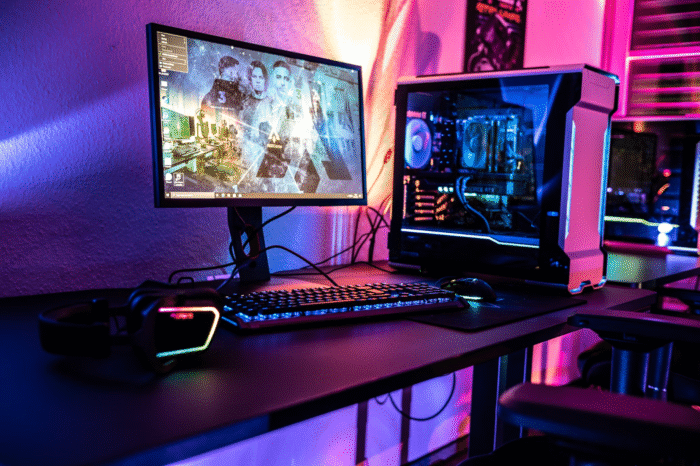
The glow of a monitor flickers as an aspiring esports player fine-tunes their PC, ready to dive into a high-stakes match of League of Legends or Dota 2. Meticulous PC and software preparation can make or break performance in the competitive world of esports, where split-second reactions matter.
Prepping one’s weapon, hard drive and computational power in this case, becomes crucial. It is as if an MLB athlete makes sure their bat is fine before coming onto the field or as if a bettor would get themselves fully ready going through the loevegas sportsbook review prior to placing a wager.
Optimizing Hardware for Peak Performance
A well-prepared PC starts with robust hardware tailored for esports demands. High-refresh-rate monitors, like those used by pro players, ensure smooth visuals, while powerful GPUs handle games like Counter-Strike without stuttering.
Regular maintenance—cleaning dust, upgrading RAM, or improving cooling—keeps systems responsive. Research on gaming hardware suggests that optimized setups reduce input lag, giving players an edge. However, high-end components can be costly, limiting access for some.
Exploring hardware prep reveals its impact on performance, but balancing cost and quality is key to building an effective battle station.
Fine-Tuning Software Settings
Software configuration is equally vital for esports success. Adjusting in-game settings, like lowering graphics for higher frame rates in Valorant, minimizes delays. Updating drivers, as recommended by companies like NVIDIA, ensures compatibility and stability.
Many players rely on streamlined setups to maintain consistency. Studies on gaming optimization indicate that tailored settings boost responsiveness, but misconfigurations can cause crashes or lag. Beginners might find the process daunting, requiring patience to master.
Examining software tweaks highlights their role in creating a seamless experience, provided players invest time in learning.
Leveraging Performance Tools
Performance tools, such as MSI Afterburner for monitoring frame rates or Discord for team communication, enhance esports readiness. These tools help players track system performance or coordinate strategies in games such as Dota 2.
Research on esports tech suggests that real-time monitoring prevents bottlenecks, ensuring smooth gameplay. However, running multiple tools can strain older PCs, and over-reliance might distract from skill development.
Exploring these tools shows their ability to refine setups, but moderation is needed to keep focus on gameplay rather than technical tweaks.
The Cost Barrier Challenge
Setup costs pose a significant hurdle in PC preparation. High-quality rigs, with components like those of Intel’s, can be expensive, potentially excluding aspiring players from competitive scenes. Budget-friendly alternatives exist, but they may compromise performance.
Studies on esports accessibility highlight economic disparities, with wealthier players gaining advantages through better equipment.
Balancing Prep with Skill Development
While PC prep is crucial, it must complement skill development. A perfectly tuned rig won’t compensate for poor strategy or reflexes in games like Overwatch. Pros manage to balance tech optimization with practice, honing both setup and gameplay.
Studies on esports performance suggest that excessive focus on hardware can detract from training, urging a balanced approach. Encouraging players to refine their PCs while dedicating time to skill-building ensures preparation enhances, rather than overshadows, their competitive growth.
Crafting a Competitive Edge
A meticulously prepared PC is a battle station for esports dominance, blending optimized hardware, fine-tuned software, and performance tools to sharpen skills. From reducing lag in League of Legends to enabling clutch plays in Valorant, disciplined prep offers a competitive edge.
Challenges like costs and ethical concerns require careful navigation, but the rewards—enhanced responsiveness and confidence—are worth it. Aspiring players are invited to explore accessible tools and fair practices, building setups that fuel their esports dreams. In the glow of the screen, a well-crafted battle station becomes a launchpad for greatness.

